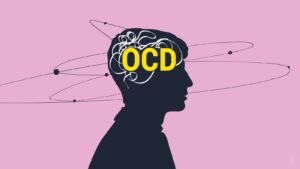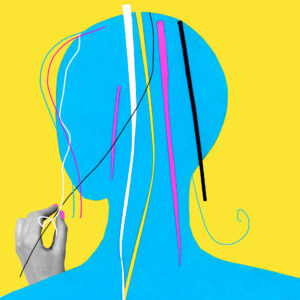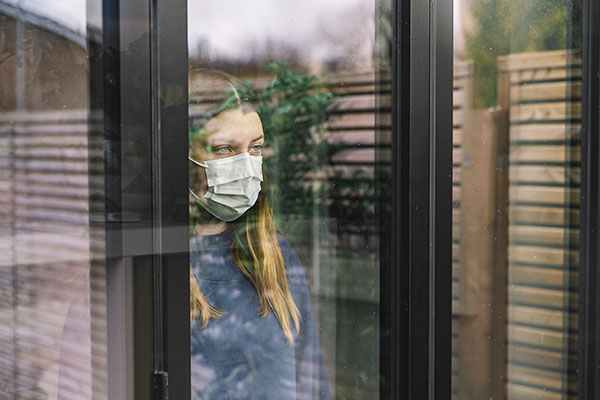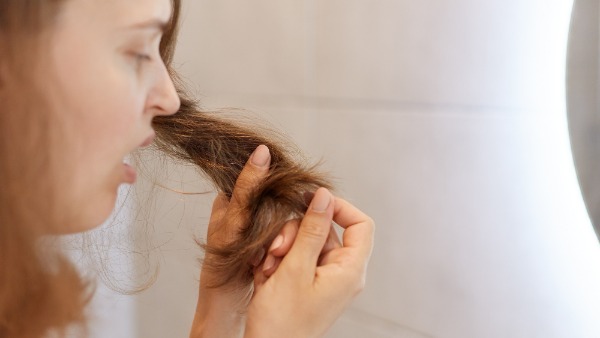Do you pull out your hair? If so, you may be wondering if you have trichotillomania. This is a condition that is often associated with OCD, but it may be something else altogether. In this blog post, we will discuss the signs and symptoms of trichotillomania, as well as the treatments available. We will also explore whether or not trichotillomania is an OCD disorder.
Contents
What Is Trichotillomania?
Trichotillomania, also known as a hair-pulling disorder, is a mental disorder that involves recurrent, irresistible urges to pull out one’s hair. Although it can occur in both children and adults, it is most common in teenagers.
The exact cause of trichotillomania is unknown, but it is thought to be associated with other mental disorders such as anxiety disorders, depression, and obsessive-compulsive disorder (OCD). Treatment for trichotillomania typically includes behavioral therapy and medication.
Trichotillomania is classified as a body-focused repetitive behavior (BFRB). BFRBs are characterized by repetitive, compulsive behaviors that result in physical damage to the body. Other examples of BFRBs include skin picking and nail-biting.
What Is OCD?
 OCD is an anxiety disorder that causes people to have unwanted and intrusive thoughts, feelings, images, or sensations (obsessions) that make them feel driven to do something repetitively (compulsions).
OCD is an anxiety disorder that causes people to have unwanted and intrusive thoughts, feelings, images, or sensations (obsessions) that make them feel driven to do something repetitively (compulsions).
People with OCD may be obsessed with germs or dirt and feel compelled to wash their hands over and over. Others may be afraid of losing things and compulsively check the locks on doors or hoard items. People with OCD may spend hours organizing their homes just so or repeatedly clean their cars. Some people with OCD become preoccupied with sexual or religious thoughts and worry they will act on these impulses.
OCD can be a very debilitating condition, making it hard for people to work or go about their daily lives. It is important to seek professional help if you think you may have OCD.
Is Trichotillomania OCD?
Trichotillomania is a disorder that involves the repeated urge to pull out one’s hair. This can lead to baldness, and it can be a very distressing condition for sufferers. While it shares some features with OCD, it is not currently classified as an OCD diagnosis. However, there is some debate over whether or not this should be changed.
The main difference between trichotillomania and OCD is that trichotillomania is classified as an impulse control disorder, while OCD is classified as an anxiety disorder. This means that the two disorders are treated differently. However, they do share some similarities, such as the fact that both can be very distressing for sufferers and can lead to hair loss.
Some experts believe that trichotillomania should be reclassified as an OCD diagnosis, as it shares many features with the disorder. However, others argue that it should remain its separate diagnosis, as the two disorders are treated differently. Ultimately, this decision will be up to the experts who classify mental disorders. A change in classification could lead to a change in how the disorder is treated, so it is an important decision.
Relationship Between Trichotillomania and OCD
 The relationship between trichotillomania and OCD is not fully understood. Some experts believe that trichotillomania may be a type of OCD, while others believe that it is a separate disorder. There are some similarities between the two disorders, such as the fact that both can be triggered by anxiety or stress. However, there are also some major differences, such as the fact that people with OCD typically do not enjoy the act of pulling their hair out, whereas people with trichotillomania often do.
The relationship between trichotillomania and OCD is not fully understood. Some experts believe that trichotillomania may be a type of OCD, while others believe that it is a separate disorder. There are some similarities between the two disorders, such as the fact that both can be triggered by anxiety or stress. However, there are also some major differences, such as the fact that people with OCD typically do not enjoy the act of pulling their hair out, whereas people with trichotillomania often do.
There is still much research to be done in this area, but it is clear that there is a complex relationship between trichotillomania and OCD. If you or someone you know suffers from either of these disorders, it is important to seek professional help. With treatment, it is possible to live a happy and healthy life.
In relationship to OCD, it’s been found that:
-Trichotillomania may be a type of OCD
-They can both be triggered by anxiety or stress
-People with OCD don’t enjoy pulling their hair out, but people with trichotillomania often do.
This complex relationship is still being researched, but if you or somebody you know suffers from either disorder, professional help should be sought. Treatment options are available and with help, a healthy and happy life can be led.
However, there are also some major differences, such as the fact that people with OCD typically do not enjoy the act of pulling their hair out, whereas people with trichotillomania often do. There is still much research to be done in this area, but it is clear that there is a complex relationship between trichotillomania and OCD.
Negative Impacts of Trichotillomania and OCD

There are many negative impacts of trichotillomania and OCD. The most obvious is the physical impact. Trichotillomania can lead to baldness, as well as scars and infections. OCD can also lead to physical problems, such as skin picking and hair pulling. In addition to the physical impacts, there are also emotional and social impacts.
Some of these negative impacts are:
Social Isolation
Social isolation is common in people with trichotillomania and OCD. This is because these disorders can make it difficult to interact with other people. People with trichotillomania may avoid social situations because they are embarrassed by their hair loss. People with OCD may avoid social situations because they are afraid of triggering their compulsions.
Emotional Distress
People with trichotillomania and OCD often experience emotional distress. This distress can be caused by the physical effects of the disorders, as well as social isolation. The emotional distress can also be caused by the fear of never being able to control the urges to pull hair or perform compulsions.
Low Self-Esteem
Low self-esteem is common in people with trichotillomania and OCD. This is because these disorders can make people feel ashamed, helpless, and hopeless. Low self-esteem can also be caused by the physical effects of the disorders. For example, hair loss can cause people to feel unattractive and compulsions can cause people to feel like they are not in control of their own lives.
Skin-Disorders
Another common physical effect of trichotillomania and OCD is skin disorders. This is because people with these disorders often pick at their skin or pull out their hair. This can lead to scars, infections, and other problems.
If you or someone you know has trichotillomania or OCD, it is important to seek help. There are many resources available to help people cope with these disorders. With treatment, people with trichotillomania and OCD can learn to control their urges and live happy and healthy lives.
Treatment Options For Trichotillomania and OCD

There are many treatment options available for trichotillomania (TTM) and OCD. While there is no “cure” for either disorder, many people can find significant relief from symptoms through a combination of medication, therapy, and self-care.
Medication is often the first line of treatment for both TTM and OCD. Selective serotonin reuptake inhibitors (SSRIs) are the most commonly prescribed type of medication for both disorders. These medications work by increasing levels of serotonin in the brain, which can help to improve mood and reduce anxiety. other types of medication that may be effective in treating TTM or OCD include:
-Tricyclic antidepressants
-Monoamine oxidase inhibitors
-Anticonvulsants
-Anti-anxiety medications
Therapy
In addition to medication, therapy is often an important part of treatment for TTM and OCD. Cognitive behavioral therapy (CBT) is the most commonly used type of therapy for these disorders. CBT can help people to identify and change negative thoughts and behaviors that contribute to their symptoms. Other types of therapy that may help treat TTM or OCD include:
Exposure and response prevention (ERP) therapy: ERP Therapy is a type of CBT that is specifically designed to treat OCD. During ERP therapy, people are exposed to the things that trigger their OCD symptoms (exposure) without engaging in the compulsions or rituals that they typically use to relieve anxiety (response prevention).
Family-based therapy: Family-based therapy can help treat TTM or OCD by involving loved ones in the treatment process. This type of therapy can help to educate family members about the disorders and provide them with tools to support their loved ones in recovery.
Dialectical behavior therapy (DBT): DBT therapy is a type of therapy that focuses on helping people to manage their emotions. This type of therapy can be helpful for people with TTM or OCD who struggle with impulsivity or emotional dysregulation.
Self-care
Self-care is also an important part of treatment for TTM and OCD. There are many things that people can do on their own to help reduce symptoms and improve well-being. Some self-care tips for people with TTM or OCD include:
-Practicing relaxation techniques: Relaxation techniques such as deep breathing, progressive muscle relaxation, and meditation can help to reduce anxiety and promote calmness.
-Exercising regularly: Exercise can help to improve mood, reduce stress, and increase energy levels.
-Eating a healthy diet: Eating a balanced diet can help to improve mood and energy levels.
-Getting enough sleep: Getting adequate sleep is important for overall health and well-being.
-Connecting with others: Connecting with friends, family, or a support group can provide social support and reduce isolation.
These are just a few of the many treatment options available for TTM and OCD. If you or someone you know is struggling with these disorders, it’s important to seek professional help.
Conclusion
Is trichotillomania OCD? While there are similarities, it’s important to remember that they are two distinct disorders. It’s possible to have both OCD and trichotillomania, but they don’t necessarily go hand-in-hand. If you’re struggling with either disorder, it’s important to seek professional help.
There are several effective treatment options available for both OCD and trichotillomania. With the right help, it is possible to manage both disorders and live a happy, healthy life.
If you or someone you know is struggling with trichotillomania or OCD, there are resources available to help.
Hope this article was of help to you! If you are suffering from trichotillomania and OCD, you may seek help from Therapy Mantra. We have a team of highly trained and experienced therapists who can provide you with the tools and skills necessary for overcoming trichotillomania and OCD. Contact us today to schedule an online therapy or download our free OCD treatment app on Android or iOS for more information.


